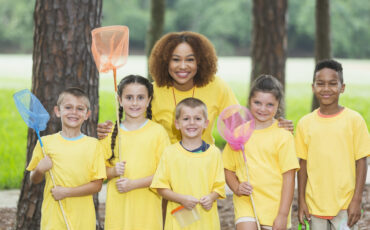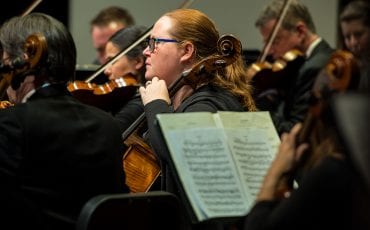The Book(s) on Parenting

Table of Contents
Chicken Soup for the Mother of PRESCHOOLER’s Soul by Jack Canfield, Mark Victor Hansen, Maria Nickless & Elisa Morgan. $14.95 (Paperback)
This book tells breathtaking stories to refresh the soul and rekindle the spirit of moms of little ones. All the stories are very moving and have humanistic values that my wife and I found very profound. Moms, as we all know, sometimes struggle. They can be sad, lonely, angry and so on. But overall, through their infinite love, compassion, forgiveness, great wisdom and care, they nurture little ones. Children are their source of strength, hope, consolation and perseverance. Reading this book, my wife and I, as parents to our 21-month-old son, not only learned new things about parenting, but also were reminded of how great mothers are. In today’s busy society, taking “slow-down” time helps us capture precious moments that nobody can take away and we can cherish for years to come. The book will bring you tears, joy, laughter, and especially peace and warmth in your heart.
– Anthony and Sylvia Le

Priceless Inspirations by Antonia “Toya” Carter. $14.95 (Paperback)
This book starts by giving basic information on how the author, a BET reality star, became a teenage parent. (Growing up, Carter was shuffled from relative to relative as her mother sank into drug addiction.) At 15 she had a daughter with Dwayne Michael Carter, aka Grammy Award-winning rapper Lil Wayne, who writes the book’s forward. The author goes into detail about life lessons learned the hard way. There are also pointers on what to look out for in the future with your child. The book offers lessons on friendships, money and love between parent, child and absentee parent. It also details the importance of maintaining positive working relationships between parents who are separated. It appears that Priceless Inspirations was written with an open heart. I would recommend that anyone parenting or expecting a child read this book.
– Erica W. McDonald

Reconnected Kids: Help Your Child Achieve Physical, Mental, and Emotional Balance by Dr. Robert Melillo. $15.95 (Paperback)
Dr. Robert Melillo, a chiropractic neurol-ogist, researcher and expert in childhood neurological disorders, created the Brain Balance Program, recognized for helping children overcome illnesses without medication. In Reconnected Kids, Melillo educates parents, guardians and caregivers on how to deal with children with behavioral problems without drugs, drama or constant trips to the doctor. Furthermore, Melillo does not just tell the reader what to do to help their child, but also informs the reader of the “how” that is involved. Melillo charges parents and caregivers to be proactive in discovering the onset of potential childhood behavioral concerns and what steps can be taken to halt illnesses before they have a chance to take over the lives of families. The reader will walk away with usable, relevant and inexpensive tools on how to create a balanced life for children so that behavioral concerns can be non-existent for the entire family.
– Laquanda Carpenter

Smart Parenting, Smarter Kids: The One Brain Book You Need to Help Your Child Grow Brighter, Healthier, and Happier by Dr. David Walsh. $25 (Hardback)
This book is the closest thing I’ve seen to a “how-to” manual that should come with your child. Walsh breaks down brain research into practical advice that can be used to help your child grow and develop in a healthy way. Reading this book was like having a good friend telling me the hows and whys of raising children. From ways to raise your child’s IQ to the effects of nutrition, exercise and sleep, each chapter comes with a parent tool kit to help understand the concepts as well as a do and don’t checklist for quick reference. The research is current and presented in an easy-to-understand format. Parents, teachers and education professionals would benefit from reading this book and gaining a better understanding of what is appropriate and relevant when we, as adults, set out to help our children succeed.
– Leigh Middleton

Grow the Tree You Got: & 99 Other Ideas for Raising Amazing Adolescents and Teenagers by Tom Sturges. $15.95 (Paperback)
If you are interested in a parenting book that challenges you to accept the gifts that your adolescent offers, this is the book for you. The author shares easy tips to guide parents who may be anxious about raising successful young adults while wondering which guidelines to follow without creating power struggles. Highlighting the importance of quality time, the author offers ways to encourage children to be who they are rather than what parents plan for them to become. Yes, Sturges does encourage parents to set expectations and boundaries. However, the expectations are grounded within the young person’s values, interests and strengths. The book is about acceptance, support and the quest to raise thriving young adults. I was particularly impressed with the five areas that the author says every adolescent should know: right from wrong, passion, creativity, perceptiveness and trust. I would certainly recommend this book to other parents. It is an easy read with practical advice for common problems that parents of adolescents face each day.
– Josette Bailey
Cavemen in Babyland: What New and Expecting Mommies Should Know About New Daddies (So That They Won’t Kill Them) by Kindred Howard. $17.95 (Paperback)
We know that men and women are different. Those differences become more pronounced, much more, when pregnancy and parenthood enter the picture, says Kindred Howard, marriage coach, award-winning freelance writer and frequent contributor to Atlanta Parent Magazine. Although daddies could use a good dose of Howard’s insight, this breezy yet poignant book is written for mommies for one reason. “MEN DON’T READ PARENTING BOOKS!” Howard says. The book is divided into three parts: basic caveman (principles that expectant or new moms should know about their mates, such as, men are problem solvers, not encouragers); the pregnancy cave, which explores how men perceive pregnancy (not well when it comes to putting a crib together); and the baby cave, addressing how men feel once baby comes home (he may put in longer hours at work not to get away from the family, but to be a better provider). Howard is an accomplished writer and keen observer. Although this easy-to-read and amusing book is geared toward moms, it may be the one parenting book that dads actually will enjoy.
– Ann Hardie








